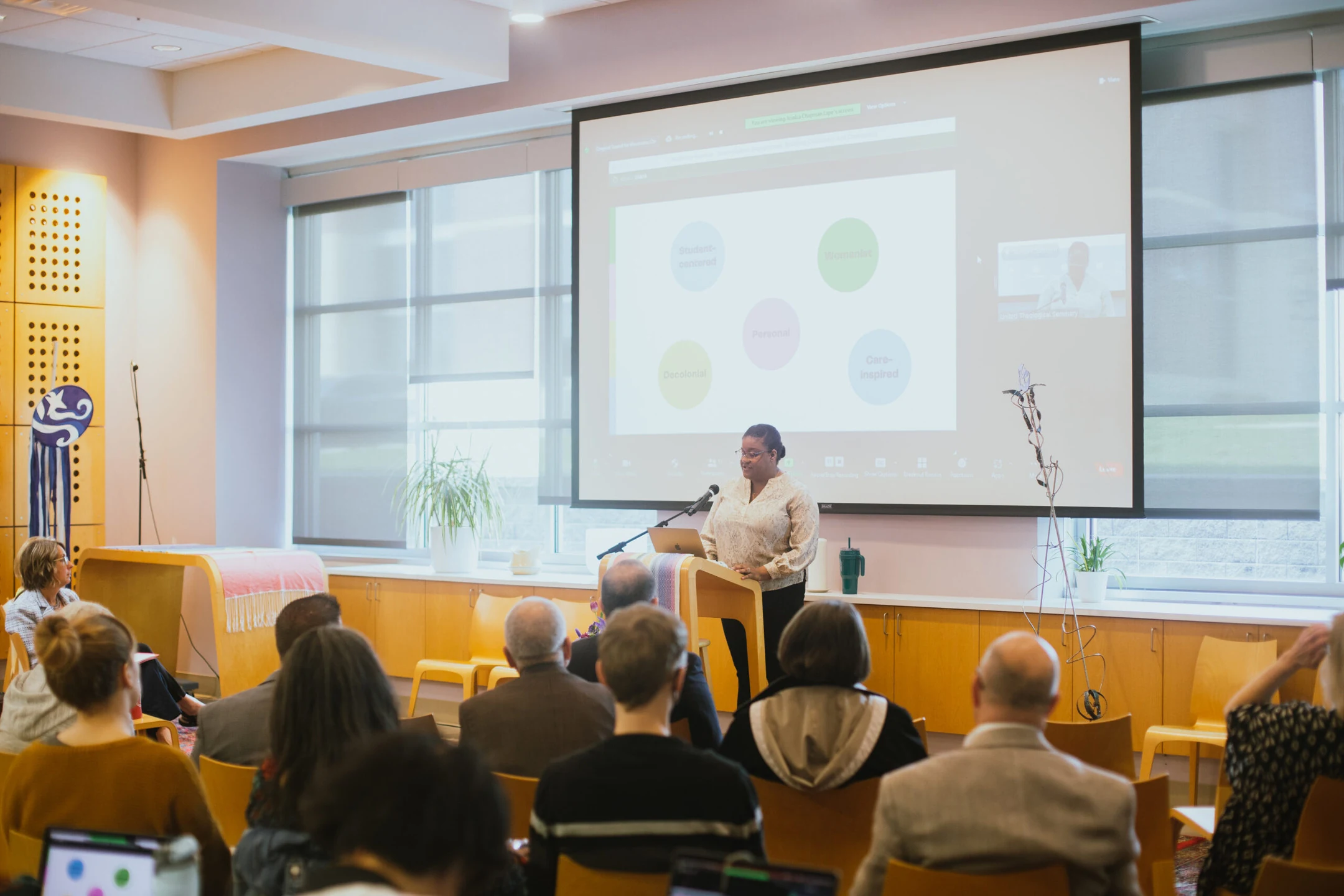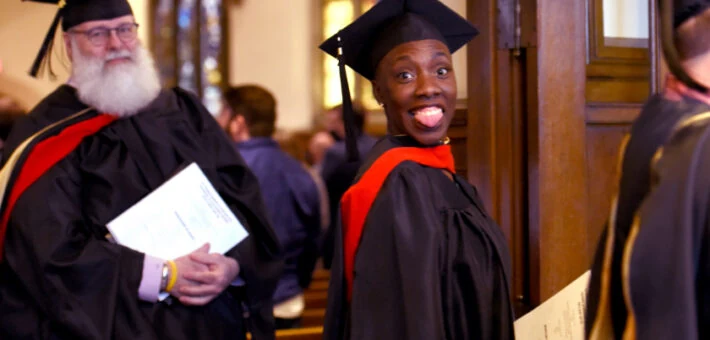We Are Now Accepting Applications for the Fall 2025 Term
The Admissions Team at United is here to do more than walk you through the application process. We’re here to get to know you, hear your story, and partner with you as you explore your future and how seminary can help you achieve your short and long-term goals. Reach out today and find out what role United can play as the “next right thing” in your journey towards ministry or other vocations of service, care, and advocacy.

Spring 2026 Deadlines
Extended Priority Deadline: December 1, 2025
Every applicant who applies to a master’s or doctoral program on or before the Priority Deadline automatically receives a $1,000 scholarship.
Regular Application Deadline: December 1, 2025
How to Apply
First, go to the application page and create an account. If you already have an account, simply log in to continue. You will be able to save your progress and check back on your application status using this login. As you work your way through the application, you’ll answer basic questions about your education, work experience, and service history.
Veterans and Service Members
If you are seeking to use VA benefits or Military Tuition Assistance, please let your admissions counselor know. United’s School Certifying Official (SCO), Dr Hillary Vamstad, will be happy to work with you to get set up, and advise you throughout your program.
Required Background Checks
United is a seminary that educates students about transformation to be effective spiritual leaders. As such, United upholds certain standards of character and ethics for our students. The seminary, therefore, conducts a criminal background check for each admitted student prior to matriculation, as well as before any contextual education placement.
It is common for schools, including seminaries, to require background checks of students prior to or upon matriculation. While seminaries are not necessarily employing their students, seminaries train and educate students with a view to future employment in a variety of ministry, chaplaincy, and non-profit settings, and for a variety of licensure and ordination paths, depending on the students’ vocational direction and denominational context. Furthermore, seminary students may engage in a variety of activities and experiences, including contextual education (e.g., internships) which necessitate due diligence on the part of the seminary.
United will not necessarily decline a student’s matriculation or placement on the basis of past criminal behavior. Considerations in determining a student’s acceptance may include the severity of a criminal conviction, the context, the timeframe within which the offense and conviction occurred, and an explanation by the applicant regarding how their desire to attend seminary reflects their path forward in life and their vocational goals.
Prior to Matriculation
The Dean’s Office shall oversee—and the Registrar shall order—a background check on all applicants upon admission to the seminary. The background check includes the National Criminal Database Search, National Sex Offender Registry Search (SOR), 7-year County Criminal Check, and Global Watch List. United contracts with a third party to conduct the background checks. United and the third party comply with federal and state laws for conducting background checks.
Applicants whose background check reveals a criminal conviction that is in conflict with the Seminary’s Personal Qualities for Leadership in Communities of Faith (located in the Student Handbook) or reveals false or misleading information in the applicant’s application materials may have their admission to the seminary rescinded prior to enrollment in a degree program.
The Admissions Committee shall decide whether the findings of an applicant’s background check disqualify the applicant from enrollment. The committee may request additional information and documents from the applicant and potentially a personal interview with the applicant to assist in coming to a decision. If the applicant’s admission is rescinded by the committee solely based on the results of the background check, the applicant may submit a written appeal to the Dean of the Seminary, who may confer with faculty and others in making a final decision.
The seminary shall counsel admitted applicants whose background check reveals any activity that may prevent them from a contextual education placement. Although negative findings on a background check may not prevent an applicant’s enrollment in the seminary, students should be aware that these findings may disallow certain external certifications or employment placements, should the potential employer or certifying body require and utilize their own background checks.
Prior to Contextual Education Placement
The Dean’s Office shall oversee—and the Registrar shall order—an additional follow-up background check on enrolled students before their contextual education placement. If the check reveals a criminal conviction since the student’s enrollment that conflicts with the Seminary’s Personal Qualities for Leadership in Communities of Faith, the Dean may deny the student’s participation in any or all contextual education sites.
United will inform all contextual education placement sites to which each student has applied, whether or not the student has successfully passed the seminary’s background check process.

Now Take the Next Step
Wherever you’re at in your vocational journey, we’re here to help guide you.
